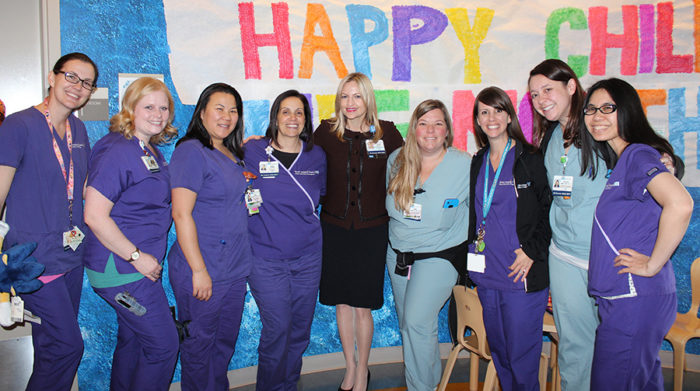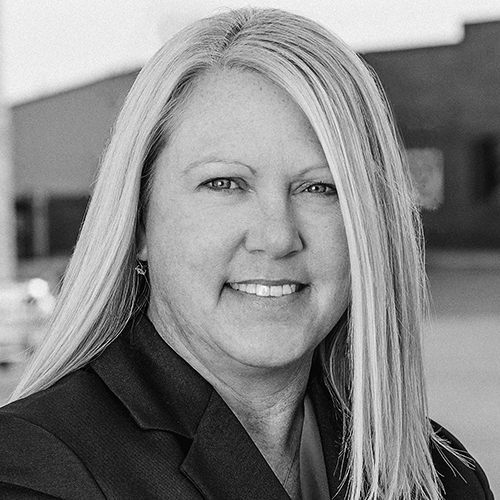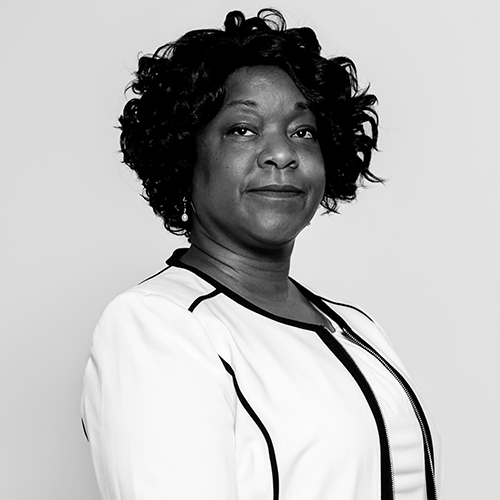For Caitlin Beck, UCLA isn’t just where she works—it’s an institution that’s been an integral part of her life for the past fifteen years. Her connection to the school started back in 2002, when she enrolled at the university to earn her master’s degree in public health. When looking back on her education, she says it seemed meant to be, even from the first day.
“I walked into that class and it felt right,” she recalls. “This is it.” While in school, Beck’s academic advisor, Dr. Paul Torrens, encouraged her to take an internship at healthcare consulting practice PricewaterhouseCoopers (PwC). But it would seem that her destiny was intertwined with UCLA. Perhaps her boss at PwC secretly knew it, too. While Beck worked there as a manager and consultant (both during her time in graduate school and for a few years after graduation in 2005), her employer recognized that public health was her true calling and urged her to pursue a career in that field. After five years at PwC, Beck left the company in 2008 to serve as the director of provider programs and outreach at Children’s Hospital Los Angeles. Her public health journey reached its next phase in 2013, when she found herself back at UCLA, not as a student this time but as executive director of women’s and children’s services at UCLA Health. In many ways, it felt like coming home.

In her current role as chief administrative officer of UCLA Mattel Children’s Hospital and women’s health, Beck supports the members of the care team who help patients. Several of her administrative duties include leading teams and large-scale projects, interacting with families, dealing with facility issues, and also getting coloring books for patients. But her primary achievement is something more unique: the creation of the Everyday Wish Fund. A smaller-scale version of the Make-a-Wish Foundation, the Everyday Wish Fund grants practical, daily wishes to children at the hospital. For instance, these patients might ask for princess pajamas, a special comfort toy, or for their room to be decorated like a classroom.
“The idea that we can improve the experience of every patient through acts of kindness is what led me to healthcare.”
When granting wishes, Beck does whatever she can to make sure they come true, often pulling in outside resources to make children’s dreams a reality.
“People are always more than willing to help,” Beck explains. “All we have to do is put the ask out there, find a solution, and I can find the funds and work the system to make it happen.”
She recalls one recent wish from a thirteen-year-old cancer patient in hospice care—a wish that required some outside help. Looking for creative ways to distract himself, the young boy designed a custom superhero costume inspired by Marvel’s Agents of S.H.I.EL.D. Beck quickly reached out to a friend who designs wedding gowns so they could bring the design from the page into the real world. The boy was thrilled to the point where he wore the costume to all of his medical procedures. Soon, Beck’s friend was making various ensembles for other patients, too.
Acts such as this tie directly back to UCLA Health’s vision of healing humankind, one patient at a time. Beck and the rest of the staff behind the Everyday Wish Fund recognize that something as simple as a superhero costume can help alleviate a patient’s suffering and make their time on earth—however long—as rewarding as possible.
“The idea that we can improve the experience of every patient through acts of kindness is what led me to healthcare,” reveals Beck. She knows from firsthand experience. While growing up in Pittsburgh, her grandfather was diagnosed with cancer when she was still in high school. Beck and her older sister helped take care of him and their grandmother, accompanying them to chemotherapy and doctor appointments. It was here that Beck learned the effect that kindness can have in healthcare.
“Learning to be an advocate as a family member was very eye-opening for me,”
she says.
Beck’s grandfather passed away when she was a sophomore in high school, and one of the best pieces of advice she got was to start volunteering at the hospital where her grandfather was treated. In fact, the suggestion came directly from his hematology/oncology doctor. Soon, Beck was helping comfort patients by visiting and getting them snacks.
Beck’s immediate family influenced her career path as well. Because she’s one of seven siblings, both her mother and her father placed great emphasis on empowering children. “In my family, everything was about the kids,” she remembers. “What the kids want for dinner, what they want to do. My uncle even invented the original ‘Kids Day’ annual holiday where the kids were in charge for the day.” This is something that obviously comes into play at her current job at UCLA Mattel Children’s Hospital. When a younger patient comes up with a concrete idea, she urges her team to get it done.
“Our patients deserve every comfort we can give them,” Beck says, “And there’s evidence that hospitalized children have better health outcomes during uplifting experiences.”
That’s something Beck has known for quite a while, dating all the way back to her grandfather and her first volunteering hours at a hospital. It’s a philosophy she’s embraced for most of her life, from childhood to graduate school and beyond. And at UCLA Mattel Children’s Hospital, she’s found a workplace and career that reflect these ideals—a sanctuary that merges her personal, professional, and educational identities. It’s a place she can call her home away from home.

